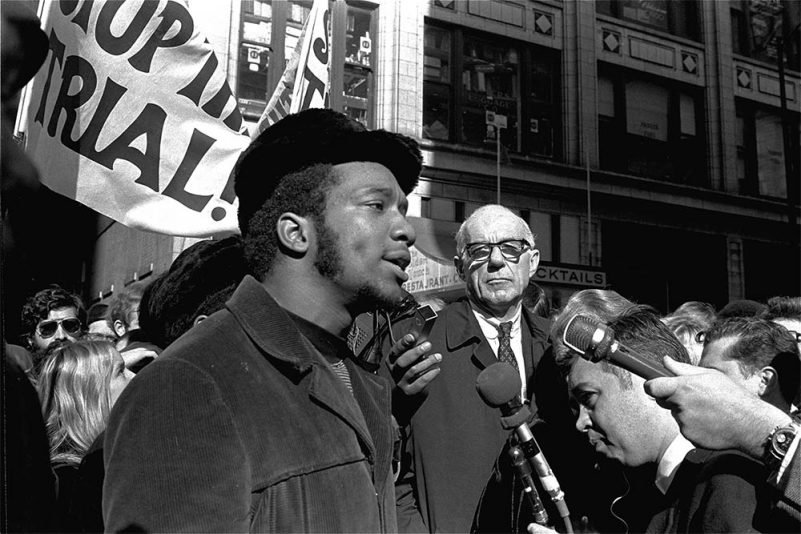
COINTELPRO: Teaching the FBI’s War on the Black Freedom Movement
Lesson by Ursula Wolfe-Rocca
Through examining FBI documents, students learn the scope of the FBI’s COINTELPRO campaign to spy on, infiltrate, discredit, and disrupt all corners of the Black Freedom Movement.

W. E. B. Du Bois to Coretta Scott King: The Untold History of the Movement to Ban the Bomb
Reading by Vincent Intondi
The Civil Rights Movement is often portrayed as purely domestic phenomena unrelated to foreign affairs, but many African Americans combined civil rights with peace, and thus broadening the Black freedom movement and helping define it in terms of global human rights.
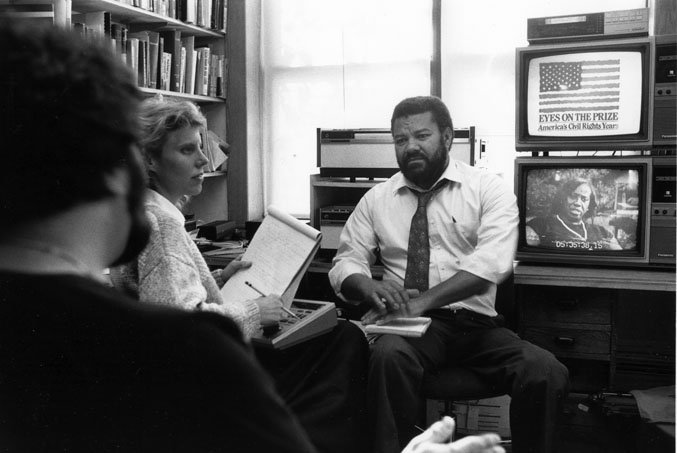
Teaching Eyes on the Prize, Teaching Democracy
Reading by Judy Richardson
Richardson shares key insights and considerations for teachers when using the Eyes on the Prize film.
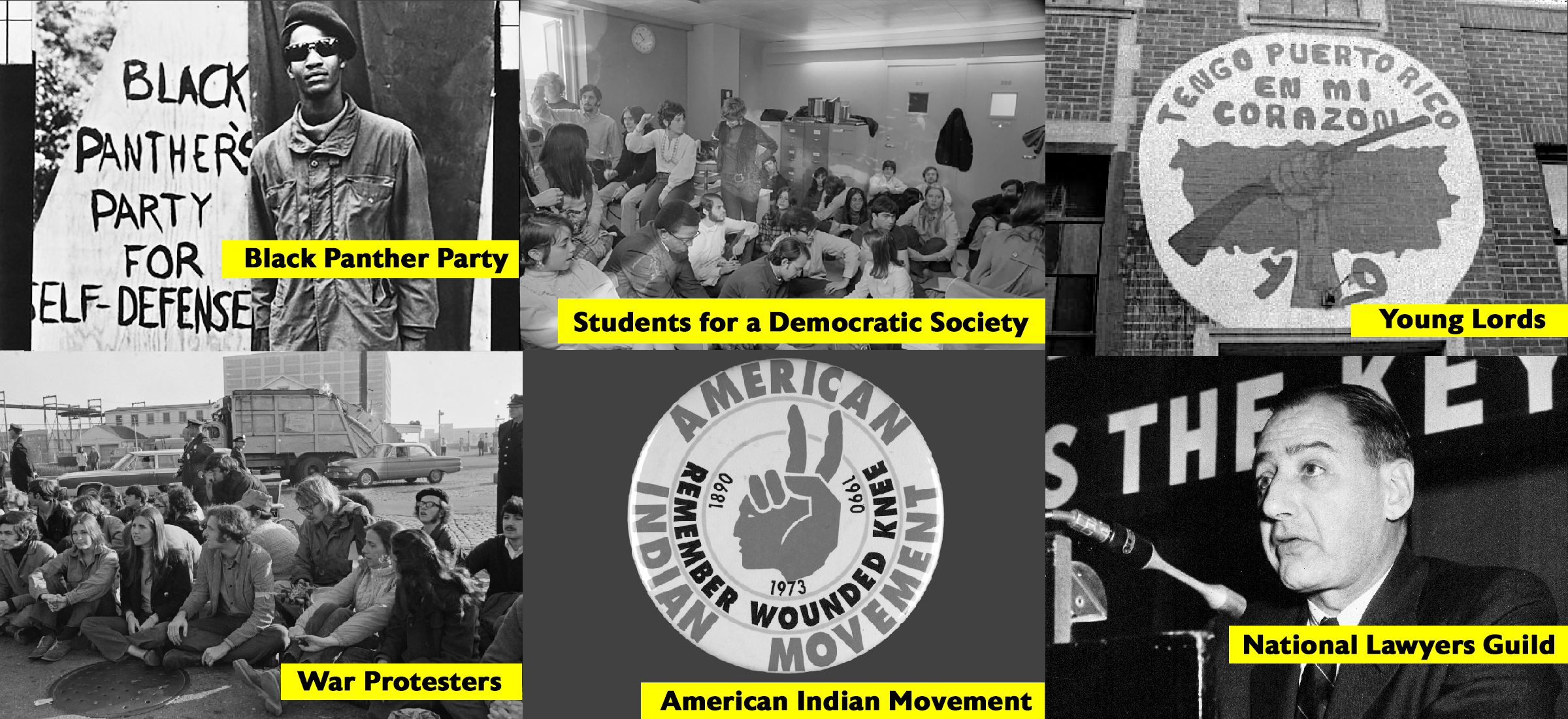
Why We Should Teach About the FBI’s War on the Civil Rights Movement
Reading by Ursula Wolfe-Rocca
Though COINTELPRO offers teachers a trove of opportunities to illustrate key concepts, including the rule of law, civil liberties, social protest, and due process, it is completely absent from most mainstream textbooks.
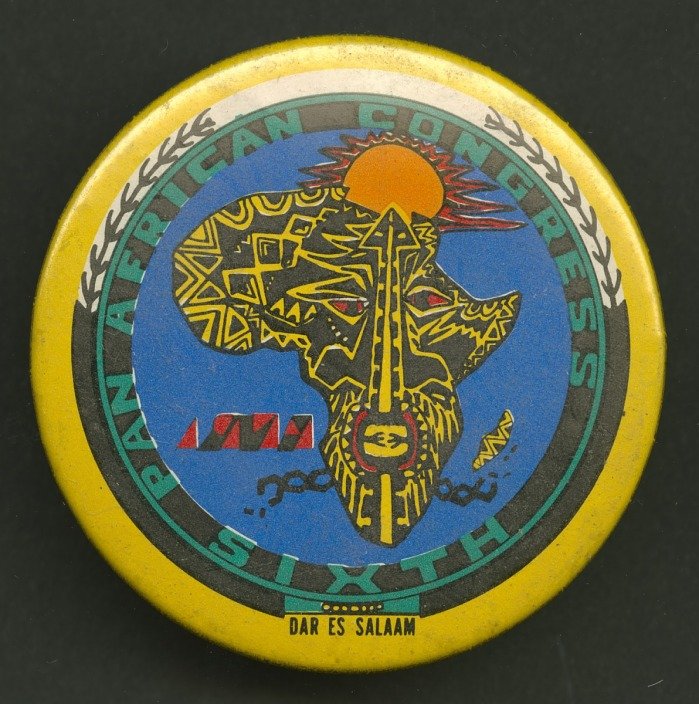
SNCC: International Connections
Reading by SNCC Digital Gateway
Growing up in the 1950s and 1960s, SNCC members were also influenced by the rising tide of liberation movements that followed World War II. As their commitment to the movement increased, they linked their own struggle for civil and human rights at home with anti-colonial struggles in Africa, Asia, and Latin America.

What Julian Bond Taught Me
Reading by Jeanne Theoharis
Freedom movements don’t just happen, they are made—and not by charismatic leaders, but by everyday people possessing great courage. Reflections on what Julian Bond taught us about how social movements are built and sustained.
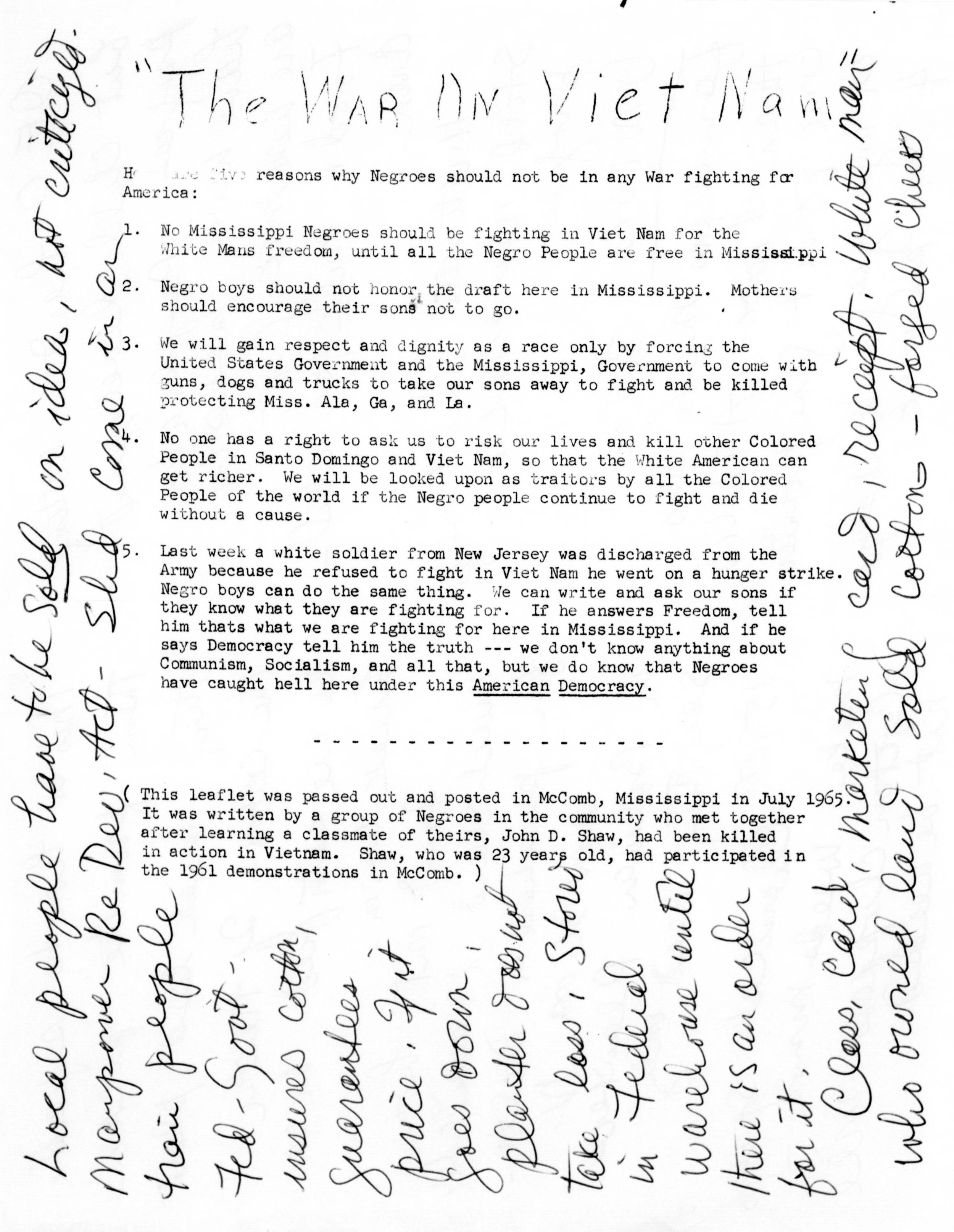
McComb Statement Against the Vietnam War, July 1965
Reading by SNCC Digital Gateway.
In July 1965, a group of young activists in McComb, Mississippi’s Movement learned that John Shaw, one of their former classmates at Burglund High School, was killed in combat in Vietnam. Their statement written in response about the reasons why African Americans should not serve in Vietnam was the first anti-war statement from within the Civil Rights Movement. It paved the way for SNCC to take a stance against the war.
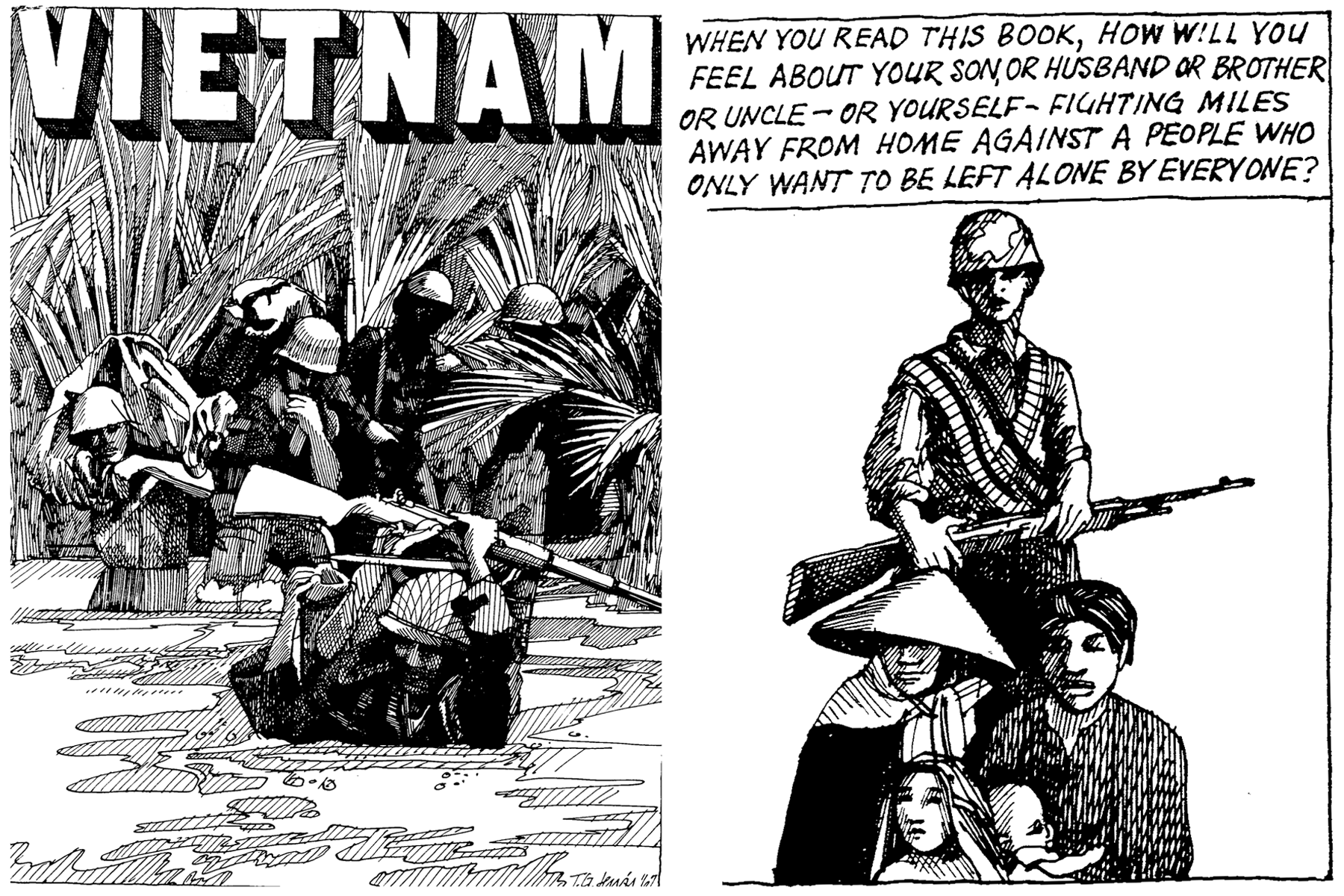
Vietnam: An Anti-War Comic Book
Primary Document by Julian Bond
A history of the Vietnam War and examples of African American opposition to the war, presented in an easy to read comic book format.
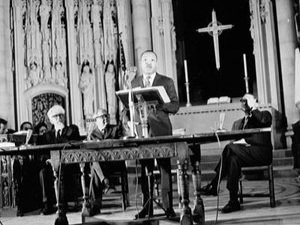
Beyond Vietnam — A Time to Break Silence
Reading by Martin Luther King Jr.
On April 4, 1967, exactly one year before his assassination, Martin Luther King Jr. delivered his first major speech on the war in Vietnam. In this speech he links the escalating U.S. commitment to the war in Vietnam war with its abandonment of the commitment to social justice at home. He calls for a “shift from a ‘thing-oriented’ society to a ‘person-oriented’ society” and for us to “struggle for a new world.”
